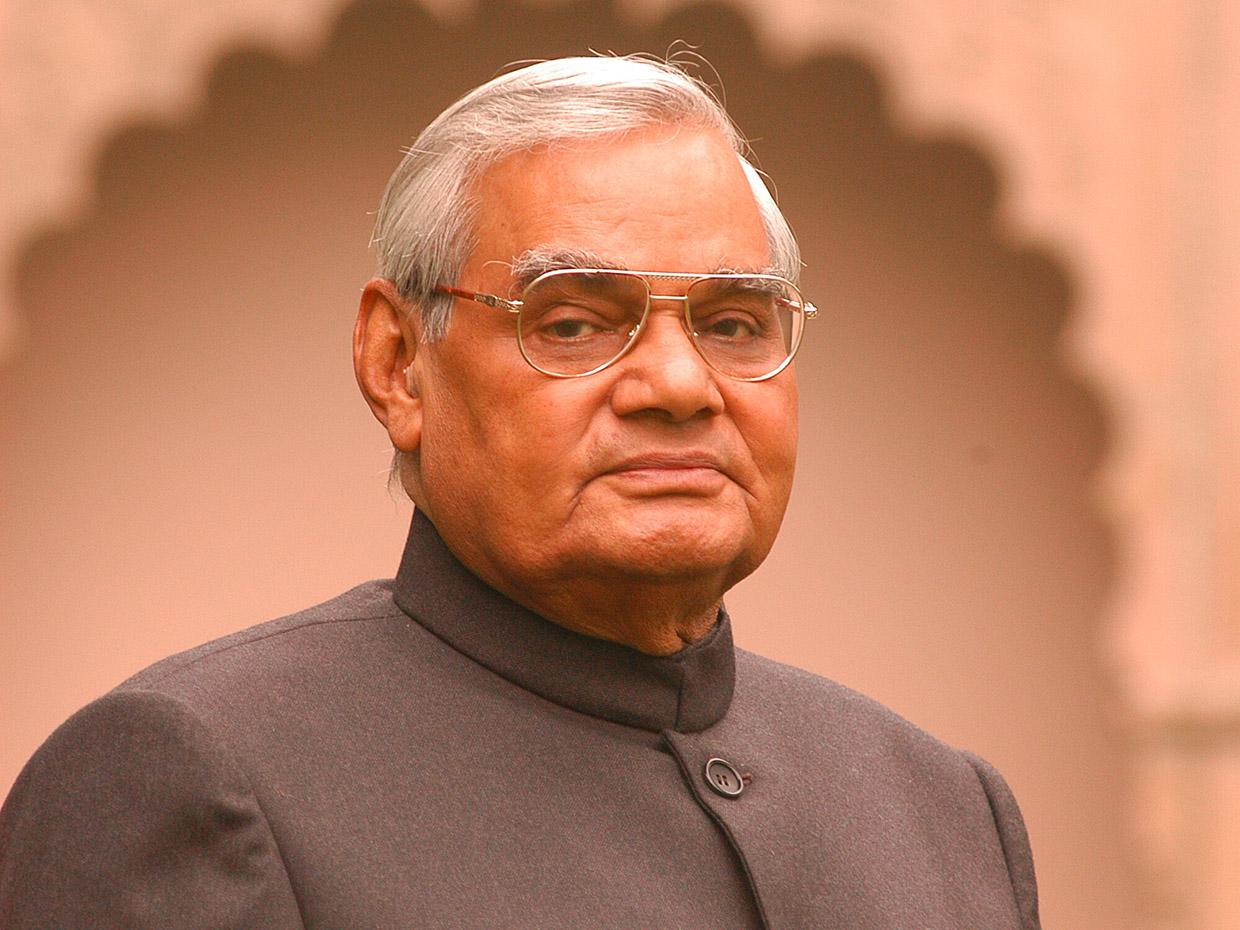Atal Bihari Vajpayee holds the esteem of being one of India’s most beloved political figures. He was a multifaceted individual with the qualities of a philosopher, statesman, orator, and poet. His term as the Prime Minister of India came thrice and his development strategies and policies remarkably shifted the between pursuing and achieving politics of the state. His input in the exports of the Indian economy and amalgamation of modern diplomacy strategy stands him out among others and is one of the reasons why he continues to hold clout in Indian politics.
To comprehend the early life and education of Atal Bihari Vajpayee, one needs to know that the great leader was born into a Brahmin family on 25th December 1924 in Gwalior, Madhya Pradesh. The upbringing he had contributed towards developing his interest in poetry as both his parents emphasized literature and art, and his father worked as a school teacher and poet. His quest for knowledge began at Victoria College which now is called Laxmi Bai College, he went on to earn his Masters in Political Science from DAV College based in Kanpur.
The onset of India’s independence movement was the initiation of Atal Bihari Vajpayee’s political career which began with him becoming a volunteer at Rashtriya Swayamsevak Sangh, which later led him to becoming affiliated with Bharatiya Jana Sangh, the political branch of RSS.
In 1957, from Balrampur, Uttar Pradesh, he was elected as a Member of Parliament which marked the beginning of his career in parliament. Vajpayee best known for his public speaking and humanitarian tendencies developed to garner respect from all the other parties within the parliament. In 1980, he was instrumental in the establishment of the Bharatiya Janata Party and became its first president.
Atal Bihari Vajpayee: Prime Ministerial Tenure
Atal Bihari Vajpayee was in the office of the Prime Minister of India three times. The times and duration are as follows: for 13 days in 1996, again for 13 months from 1998 to 1999, and again from 1999 to 2004. Many of his achievements and notable policies are noted throughout the history of India:
- Nuclear Tests at Pokhran (1998): Vajpayee was able to successfully turn India into a nuclear power through the undertaking of multiple tests that were successfully executed in Pokhran Rajasthan, advocating for peace across the globe while also demonstrating India’s defence abilities.
- Economic Reforms and Infrastructure: To aid the economy, his government carried out numerous economic reforms such as changing the policies on investment for state units, as well as developing major infrastructure projects including the Golden Quadrilateral and Pradhan Mantri Gram Sadak Yojana to enhance the connection across the country.
- Efforts at Peace with Pakistan: Building on the Bus Service instituted during 1999’s Lahore and the Agra summit highlights the attempts made by Vanpayee to establish diplomacy with Pakistan even during the Kargil War.
- Kargil War Of India `winner in 1999 Berl Kharkae: Due to sustaining unity in the nation and strategic military tactics taken during the Kargil war Single-handedly ensured India won the war and also was able to articulate India’s intervention strategy of defending their borders internationally.
Atal Bihari Vajpayee: Personal And Political Plight
Vajpayee not only had a flourishing career in the political spectrum, but he was also a skilled writer and poet. His patriotism can be summarized by his philosophical books ‘Meri Ekavani’ and ‘Kaidi Kaviraj Ki Kundaliya’ paraphrasing them evokes patriotism. His speeches were also interestingly greatly influential in his rhetorical style.
Owing to his deteriorating health conditions he retired from active politics in 2005, but he tragically passed away on the 16th of August 2018, signalling a turning point in the recent political history of India, however, his message and works remain relevant to this very day.
Conclusion
Indeed, Atal Bihari Vajpayee’s life has encouraging stories of a leader who positively influenced the people’s lives and the Indian society at large. His life does not just offer Indian citizens ideas to be proud of, he was the embodiment of one himself as he has gone through very real struggles and discouragements, and being exiled has changed his outlook and vision. He must certainly be regarded as the true leader of modern India.

